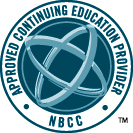
Innovations in Counseling

Engaging Communities of Color in Therapy With Technology
Therapy was once limited to “talk therapy” only, with little emphasis placed on outside tools or support. But using effective tools to address mental health concerns can make all the difference. It is critical for helping professionals to be equipped with a variety of tools when addressing the needs of diverse populations. We can no longer deny the impact that technology has on everyone. Technology can assist with expanding the ability to assist underserved populations, who would not otherwise have access to specialized services. Technology can serve as a bridge to connect various populations with the help that is needed. Often, therapists, social workers, and others in the helping fields shy away from technology. However, technology is here to stay, and this presentation will empower professionals to utilize technology while adhering to ethical guidelines. Participants will learn how to leverage technology in the therapy room with consideration for multicultural implications.
After this webinar, participants will be able to:
- Identify two ways the use of technology impacts therapy with individuals of diverse cultures.
- Identify at least two evidence-based telemental health approaches that are effective with culturally diverse populations.
- Summarize two ways in which clients respond to the use of technology by therapists, social workers, and others in the helping professions.
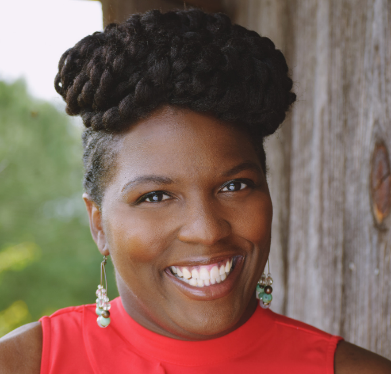
Marquita Johnson, MDiv, NCC, BC-TMH, LPC, CPCS
Marquita Johnson is a graduate of Mercer University with a Master of Science in community counseling and a Master of Divinity with a concentration in pastoral counseling. Ms. Johnson received her undergraduate degree from Georgia State University in psychology and sociology. Currently, Ms. Johnson is a second-year doctoral student in counselor education and supervision at Walden University. She is a Licensed Professional Counselor, National Certified Counselor, Board Certified–Telemental Health Provider, and Certified Professional Counseling Supervisor. In addition to those roles, Ms. Johnson serves as a graduate assistant at Walden University and is the learning community chair for Chi Sigma Iota. With over a decade of experience in mental health, Ms. Johnson most recently served as a college counselor at SCAD-Atlanta and Georgia State University, where she worked with millennials at various stages of life. Ms. Johnson has a private practice located in the heart of Atlanta, Millennial Counseling, Coaching, and Consulting. Her specialties include working with concerns including dating, divorce, step-families, and grief related to loss in relationships, and she especially enjoys her work with millennials.
Q & AThe Other Side of the Rainbow—Cultural Sensitivity and the LGBTQ Community
Civil rights laws have promoted the inclusion of all cultural groups, including the LGBTQ community. However, various circumstances have created barriers for clinicians to know, understand, and support members of this unique community. Through this webinar, participants will have the opportunity to learn ways to effectively work with members of the LGBTQ community while also increasing their knowledge on terms, appropriateness, and techniques that are effective in individual and couples-based clinical sessions.
After this webinar, participants will be able to:
- Recognize their ethical responsibility in working with the LGBTQ community and incorporate ways to market their services to this unique population.
- Increase their technical knowledge (skills, vocabulary, interventions, and techniques) in working with members of the LGBTQ community.
- Utilize resources to work with all members of the LGBTQ community, including the children of same-sex parents.

LaNail R. Plummer, EdD, NCC, ACS, BC-TMH, LCPC (MD), LPC (DC)
As a National Certified Counselor (NCC), Licensed Clinical Professional Counselor (LCPC-MD), Licensed Professional Counselor (LPC-DC), and Approved Clinical Supervisor (ACS), Dr. LaNail R. Plummer is committed to improving the lives of many through mental health and character development. Through the values of integrity and awareness, Dr. Plummer believes that emotional, spiritual, and cultural healing is attainable.
Dr. Plummer and her team of counselors specialize in child-centered play therapy, cognitive behavioral therapy, rational emotive behavioral therapy, and solution-focused therapy. As a graduate of Howard University and Marymount University, Dr. Plummer ensures that her clinical sessions incorporate cultural frameworks as a method of self-awareness, processing, and healing.
As a counselor, Dr. Plummer is passionate about being a guide to her clients. She has over 13 years of clinical experience that spans variations in clients ages 3+, co-parenting, couples, and families. Additionally, her work can be tailored to support the individual and couple-based needs of members of the LGBTQ community while also allowing for the role of spirituality and meaning.
As a presenter, Dr. Plummer enjoys sharing her knowledge of clinical frameworks and counseling, clinical supervision, small business/private practice start-ups, and spiritual techniques and implications in therapeutic sessions. As such, Dr. Plummer has presented at many international and national conferences, including the European Branch of the American Counseling Association (EB-ACA), the Association of Black Psychologists (ABPsi), and the Maryland Counseling Association (MCA). Additionally, Dr. Plummer has presented insightful mental health tips and commentary on local and national media outlets, including ABC7, NBC4, and CNN.
As a small business minority (Black, woman, U.S. Army veteran) owner, Dr. Plummer believes in a cumulative approach to mental health, business development, and balanced living. Dr. Plummer is the co-founder and owner of EMC2 Mental Health Counseling and Educational Consulting. She, and her team of nine Black women counselors and three educational specialists, operate 34 offices in Washington D.C. Dr. Plummer is also a full-time faculty member at Johns Hopkins University.
Q & ATreating Grief in Black Women With Infertility and Reproductive Loss
This webinar focuses on issues related to perinatal grief and loss in African-American women experiencing reproductive loss and infertility. Applying social justice and feminist frameworks, participants will also receive effective and culturally adaptive clinical strategies that promote positive treatment outcomes in grieving infertile African-American women experiencing reproductive loss.
After this webinar, participants will be able to:
- Describe and define infertility and its impact on African-American women.
- Discuss various forms of perinatal grief related to reproductive loss and infertility in African-American women.
- Apply various culturally adaptive treatments and interventions that promote positive treatment outcomes in infertile African-American women experiencing reproductive loss.
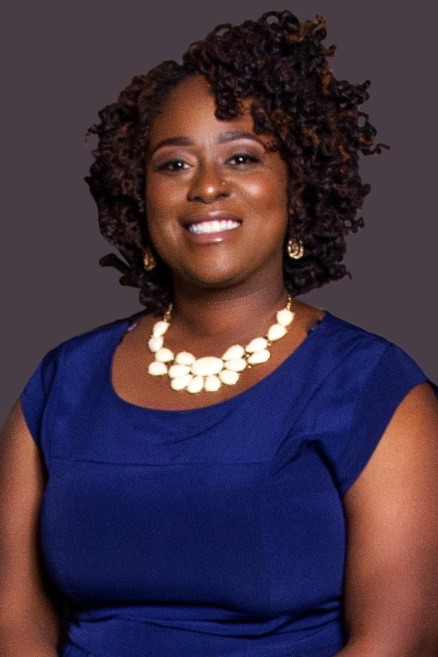
Kristy Christopher-Holloway, EdD, NCC, ACS, DCC, LPC
Dr. Kristy Christopher-Holloway is an assistant professor at Lindsey Wilson College, the founder and director of New Vision Counseling Center, LLC, a group private practice in Douglasville, Georgia, that offers affordable outpatient mental health counseling, and the founder of New Vision Consulting and Training, LLC. She is a Licensed Professional Counselor (LPC) in Georgia, a National Certified Counselor (NCC), a Distance Credentialed Counselor (DCC), and an Approved Clinical Supervisor (ACS).
Dr. Christopher-Holloway earned her Bachelor of Science in psychology from Louisiana State University-Shreveport, her Master of Science from Georgia State University, and her doctoral degree in counselor education and supervision from Argosy University-Atlanta, where her research focused on the mental health help-seeking experiences of religious or spiritual African-American women diagnosed with infertility, as well as the psycho-emotional impact of infertility.
Dr. Christopher-Holloway has presented at conferences, workshops, and trainings locally, nationally, and internationally with focuses on African-Americans and mental health, the psycho-emotional impact of infertility in African-American women, addressing religion and spirituality in the counseling session, counselor multicultural competence, the strong Black woman syndrome and generational trauma, operating a successful private practice, incorporating wellness in clinical practice, and more.
Q & ATreating Grief in Black Women With Infertility and Reproductive Loss
This webinar focuses on issues related to perinatal grief and loss in African-American women experiencing reproductive loss and infertility. Applying social justice and feminist frameworks, participants will also receive effective and culturally adaptive clinical strategies that promote positive treatment outcomes in grieving infertile African-American women experiencing reproductive loss.
After this webinar, participants will be able to:
- Describe and define infertility and its impact on African-American women.
- Discuss various forms of perinatal grief related to reproductive loss and infertility in African-American women.
- Apply various culturally adaptive treatments and interventions that promote positive treatment outcomes in infertile African-American women experiencing reproductive loss.

Kristy Christopher-Holloway, EdD, NCC, ACS, DCC, LPC
Dr. Kristy Christopher-Holloway is an assistant professor at Lindsey Wilson College, the founder and director of New Vision Counseling Center, LLC, a group private practice in Douglasville, Georgia, that offers affordable outpatient mental health counseling, and the founder of New Vision Consulting and Training, LLC. She is a Licensed Professional Counselor (LPC) in Georgia, a National Certified Counselor (NCC), a Distance Credentialed Counselor (DCC), and an Approved Clinical Supervisor (ACS).
Dr. Christopher-Holloway earned her Bachelor of Science in psychology from Louisiana State University-Shreveport, her Master of Science from Georgia State University, and her doctoral degree in counselor education and supervision from Argosy University-Atlanta, where her research focused on the mental health help-seeking experiences of religious or spiritual African-American women diagnosed with infertility, as well as the psycho-emotional impact of infertility.
Dr. Christopher-Holloway has presented at conferences, workshops, and trainings locally, nationally, and internationally with focuses on African-Americans and mental health, the psycho-emotional impact of infertility in African-American women, addressing religion and spirituality in the counseling session, counselor multicultural competence, the strong Black woman syndrome and generational trauma, operating a successful private practice, incorporating wellness in clinical practice, and more.
Q & AThe Psychology of Millennials
Millennials range in age from 18 to 34, and represent a generation of people who are true multitaskers. But this results in difficult issues that can play into the health of millennials. This generation is cognitively overloaded with information and suffering from what is called ambition addiction and choice-overload, all of which results in high levels of stress. They may appear to have less patience than past generations and be more self-focused, wherein they do not want social control and obligations from binding relationships. They typically believe in taking independent decisions and want to take charge of the adult levels of responsibilities only when they feel the need to it. They spent most of their time on networking in a virtual world. They have poor sleeping habits and get fewer of hours of sleep than generations past. With increasing stress levels, irritability and anger are rampant. About 19% of millennials suffer from depression and anxiety. They tend to take this stress out on family and friends. It is also reasonable to assume that these stress levels place millennials right in the middle of destructive health issues.
After this webinar, participants will be able to:
- Learn to identify millennials, and compare their views, needs, expectations, and attitudes to those in other generations.
- Understand basic expectations that are common across the millennial generation and how to manage expectations.
- Explore strategies for helping this generation move from stress perceptions to achieving success.
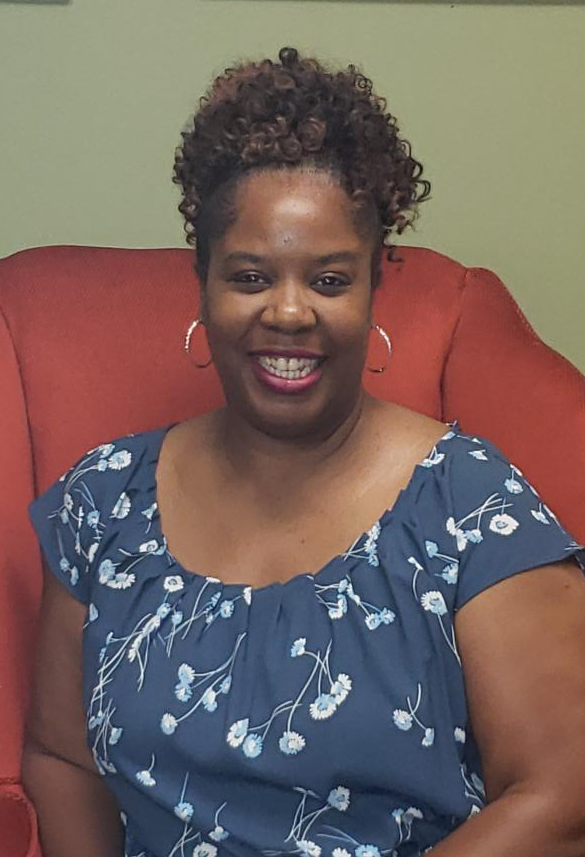
Camille D. Grier, MS, NCC, LPC, CPCS
Camille D. Grier has been a Licensed Professional Counselor in Georgia with over 13 years of experience working as a professional counselor and life coach. Ms. Grier has been in private practice since 2009. She received her bachelor’s degree in psychology with a minor in sociology from Georgia State University in 2001. Ms. Grier received a graduate degree in community counseling from Mercer University in 2005. She is a National Certified Counselor, Licensed Professional Counselor, Certified Professional Counseling Supervisor, EAP certified provider, and Military Certified Family STARR provider. Ms. Grier has provided Certified Professional Counseling Supervision training for licensed professionals seeking certification. She has presented trainings in the workplace, schools, and community organizations.
Ms. Grier has worked with clients with a wide range of concerns, including depression, anxiety, relationship issues, parenting problems, career challenges, and severe and persistent mental illness (schizophrenia, bipolar, major depression with psychosis). She also has helped many people who have experienced physical trauma or emotional abuse. She is an interactive, solution-focused therapist. Her therapeutic approach is to provide support and practical feedback to help clients effectively address personal life challenges. Ms. Grier integrates complementary methodologies and techniques to offer a highly personalized approach tailored to each client. She believes it takes courage to seek a more fulfilling and happier life and to take the first steps toward change. With compassion and understanding, she works with each individual to help them build on their strengths and attain the personal growth they are committed to accomplishing.
Q & AIntegrity vs. Despair: Identifying Depression in Older Clients
The Centers for Disease Control and Prevention (CDC) estimates that 7 million American adults over the age of 65, or about 17% of that age group, experience depression each year. Although depression later in life is becoming more prevalent, it is not a normal part of aging. This training provides a closer look at the manifestation of depression in older clients and the symptoms that may be overlooked or incorrectly attributed to other factors related to aging.
After this webinar, participants will be able to:
- Recognize symptoms, risk factors, and causes of depression in elderly clients.
- Differentiate between grief, depression, and dementia.
- Explore clinical interventions, supports, and self-initiated activities that have been effective for addressing symptoms.
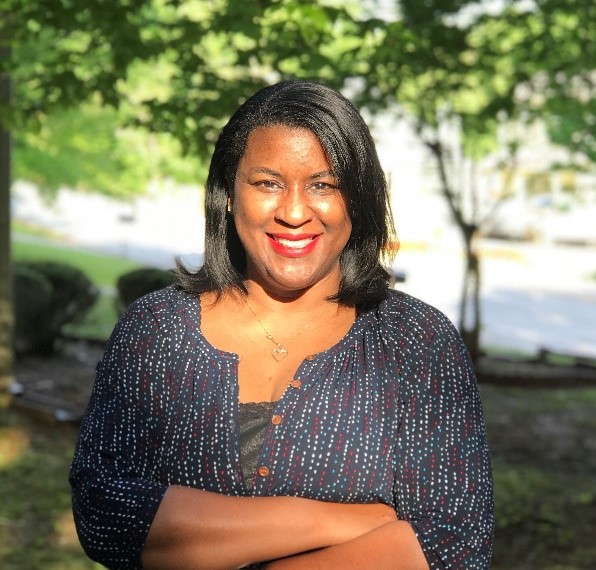
Lynell Howard, PhD, NCC, LPC, CPCS
Dr. Lynell Howard has been providing psychological counseling and consulting services for over 20 years. She began her career as a member of a private group practice where she engaged in clinical counseling and psychometric assessment. She later established an independent practice and has served numerous counseling and consulting clients in small and large organizations, including the US Armed Services, public school districts, state government, and the private sector. She has interests in military mental health, trauma, research, and organizational training.
In 2016 Dr. Howard founded Howard Harris & Associates, LLC, which specializes in providing professional training and development for behavioral health providers and other professionals. A native of New Orleans, Louisiana, and current resident of Lawrenceville, Georgia, she holds licenses as a professional counselor in both Georgia and Louisiana and has been a practicing consultant and clinician in various settings. She earned a bachelor’s degree in psychology from Tulane University, master’s degree in clinical psychology from Midwestern State University, and doctorate in industrial/organizational psychology from Capella University. She is a board certified counselor and has provided training and consulting services across the U.S., Europe, and Asia.
Q & AAddressing Addiction Treatment Barriers in Minority Communities
It has been reported that people of color (POC) do not go to counseling, do not maintain engagement in the counseling process, and/or do not participate in counseling research. Likewise, it has been reported that many members of rural communities (RCs) and diverse cultural groups (DCGs) engage in addiction treatment at lower rates.
This webinar explores the myths and facts surrounding these and other statements that purport these beliefs. More importantly, this webinar focuses on identifying and addressing some of the specific emotional, cultural, and systemic barriers to addiction treatment faced by members of minority communities.
After this webinar, participants will be able to:
- Identify three common factors that may hinder POC and members of RCs and DCGs from seeking professional assistance for addiction treatment.
- Describe three economic factors and how they may hinder POC and members of RCs and DCGs from seeking professional assistance for addiction treatment.
- Recognize three systemic-related outcomes that have negatively impacted the participation of POC and members of RCs and DCGs in seeking addiction treatment.
- Identify and discuss two specific barriers that negatively impact members of LGBTQIA communities seeking addiction counseling.
- Describe three methods for increasing the engagement of POC and members of RCs and DCGs in addiction treatment.

Robert A. Horne, PhD, MDiv, NCC, MAC, ACS, LCAS, LPC, CSI, ICAADC
Robert A. Horne serves as an assistant professor of counselor education in the Department of Allied Professions and Vice-Chair of the Faculty Senate at North Carolina Central University. Additionally, Dr. Horne serves as a counselor and counseling consultant in private practice; former chair of the NBCC Foundation Minority Fellowship Program Advisory Council (doctoral); a subject matter expert for the International Credentialing and Reciprocity Consortium; and the fitness for practice evaluator for the North Carolina Board of Licensed Professional Counselors. Dr. Horne holds a PhD in counseling and counselor education from North Carolina State University, an MA in agency counseling from North Carolina Central University, and a Master of Divinity from Duke University. He is a National Certified Counselor, Licensed Professional Counselor, Approved Clinical Supervisor, Licensed Clinical Addiction Specialist, Certified Clinical Supervisor Intern, International Certified Advanced Alcohol and Drug Counselor, and Master Addictions Counselor. Additionally, Dr. Horne is an NBCC and Substance Abuse and Mental Health Services Administration Fellow.
Dr. Horne’s research and publications focus on males of African descent’s identity development and sustenance; the relationship between spirituality, mental health, and substance use; racial fatigue, stress, and coping strategies; and the development of professional and paraprofessional counselor training and supervision in international settings among underserved populations. Dr. Horne resides in Durham, North Carolina, and has visited over 40 countries. He actively engages in conducting workshops and trainings, both nationally and internationally. He is currently working with mental health and substance abuse organizations in Uganda, South Africa, and the Caribbean to develop mental health and addiction training programs in underserved communities.
Q & AEffective Interaction With Military, Minority, and Marginalized Clients Who Have Service Animals
Once used primarily for guide and mobility work, service dogs are increasingly used to support individuals with a variety of disabilities. Unfortunately, the majority of service dog handlers also report discrimination and negative interactions while in public. This is partly due to a lack of quality information and many myths and misconceptions about the use of service animals, even among counselors and other professionals.
As service animals become more common, it is vital that counselors be well informed on the issues surrounding service animal use. Counselors may find themselves in a prescribing role for clients seeking service dogs through programs, and it is very likely that counselors will encounter service dog teams in their work. This creates an exciting opportunity for counselors to engage in advocacy and to ensure that others within the profession are informed about and able to support this growing demographic.
In this webinar we will discuss the definition of a service animal, what they do, and how a client might go through the process of acquiring a service animal. We will also explore some common experiences of handlers and discuss how to work with an individual who has a service animal in a respectful, informed manner.
After this webinar, participants will be able to:
- Identify the difference between a service animal, emotional support animal, and therapy animal, and the role of each type.
- Describe access rights for service dog teams as outlined under the Americans with Disabilities Act, as well as proper etiquette for interacting with a team.
- Explore how to work with a client who has a service dog, the basics of when a service dog may be appropriate, and how to navigate the placement process.
- Recognize common barriers handlers encounter and identify advocacy opportunities.
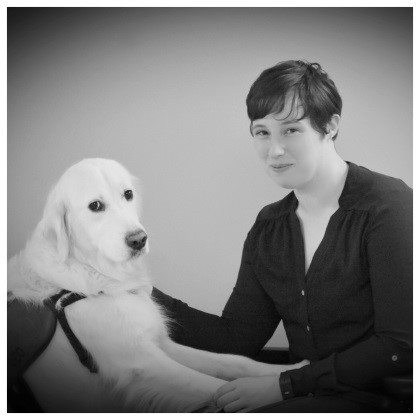
K. Lynn Pierce, MS, NCC
K. Lynn Pierce is a National Certified Counselor and a 2017 NBCC Minority Fellowship Program awardee. She has a master’s degree in clinical mental health counseling from Georgia State University. Ms. Pierce currently lives in State College, Pennsylvania, and is pursuing her PhD in counselor education and supervision at The Pennsylvania State University. She has work experience with trauma, sexual and affectional minorities, and individuals with disabilities, and much of her interest is in how intersecting identities may impact marginalized and minority individuals.
From the start of her counseling education, a strong focus for Ms. Pierce has been research and education around service animals. Ms. Pierce is a service dog handler of four years, and she has built a consultation and education presence designed to support mental health and other related professionals in recognizing the factors that contribute to the mental health and wellness of clients with service animals. She specializes in assisting professionals with interpreting the laws applicable to service dog teams, interacting with service dog handlers in positive ways, and forming therapeutic alliances through knowledge and understanding.
Q & ANBCC Foundation has been approved by NBCC as an Approved Continuing Education Provider, ACEP No. 805. Programs that do not qualify for NBCC credit are clearly identified. NBCC Foundation is solely responsible for all aspects of the programs.
Each state sets its own requirements for licensure, including continuing education requirements to maintain licensure. Questions about CE requirements for state licensure should be directed to your state board. You can find their contact information on our state board directory.
